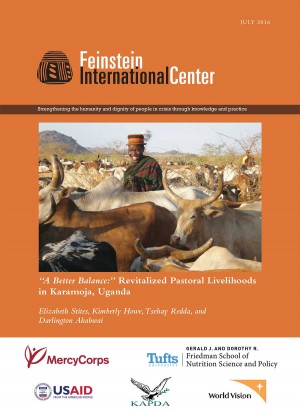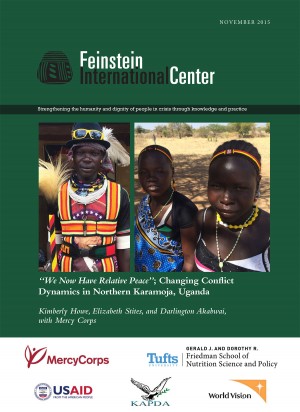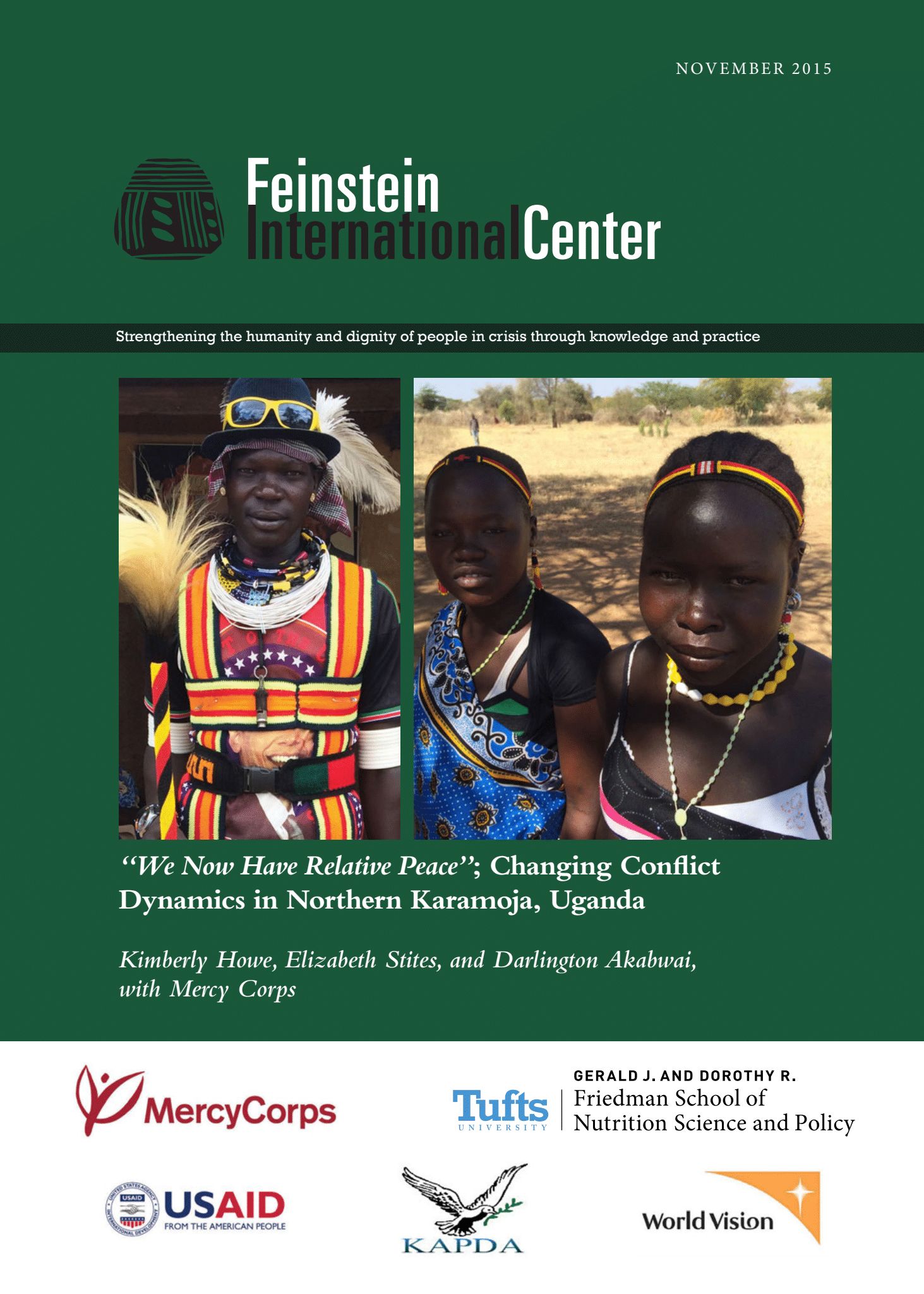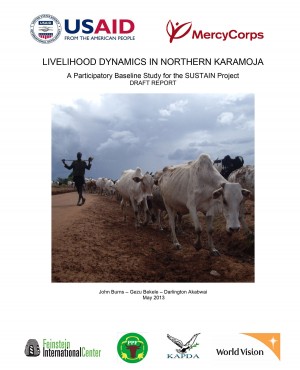“We Now Have Relative Peace” ; Changing Conflict Dynamics in Northern Karamoja, Uganda
KAPDA

A Better Balance: Revitalized Pastoral Livelihoods in Karamoja, Uganda
Livelihoods in Karamoja continue to change as security improves; this includes a revitalization of pastoral production for some households. This report details the findings from research undertaken in February and March 2016 in four districts of Karamoja aimed at better understanding the current patterns of pastoral and agro-pastoral production in the region.

“We Now Have Relative Peace”; Changing Conflict Dynamics in Northern Karamoja, Uganda
This report reflects research from early 2015 conducted by the Feinstein International Center at the Friedman School of Tufts University and Mercy Corps in northern Karamoja, Uganda. The research examined changing conflict dynamics and related conflict mitigation and peacebuilding initiatives. The objective of the study was to provide a nuanced understanding of the current threats to security at the household, community, district and regional levels, and to examine how these dynamics have changed in recent years. The study examined conflict mitigation initiatives, including access to and efficacy of these systems.

“We Now Have Relative Peace” ; Changing Conflict Dynamics in Northern Karamoja, Uganda
The objective of the study was to provide a nuanced understanding of the current threats to security at the household, community, district and regional levels, and to examine how these dynamics have changed in recent years.

Livelihood Dynamics in Northern Karamoja: A Participatory Baseline Study for the SUSTAIN Project
This report documents the findings of a livelihoods assessment carried out as part of the USAID funded Sustainable Transformation in Agriculture and Nutrition (SUSTAIN) project being implemented by Mercy Corps and partners in the Karamoja sub-region of Northeastern Uganda. The overall goal of the SUSTAIN project is to promote peace and food security through three complementary strategic objectives aimed at (1) strengthening livelihoods, (2) improving nutritional outcomes for children under two and (3) building local capacities for conflict mitigation.The project is being implemented in three districts of Northern Karamoja, Abim, Kaabong and Kotido. The objective of this particular study is to inform implementation and collect baseline impact indicators for the activities under objective # 1. Under this objective (livelihoods strengthening)the project aims to improve productivity, market access, marketing behaviors and the overall business environment.